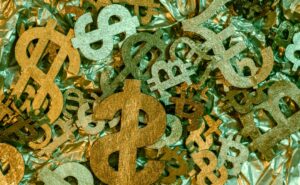The Pros and Cons of Bank Forex Trading: Is it Worth the Risk?
Forex trading is a highly lucrative and dynamic financial market that offers tremendous opportunities for investors to make substantial profits. One of the most common ways individuals participate in forex trading is through banks. Banks play a crucial role in facilitating forex trading by offering various services, including currency exchange, hedging, and trading on behalf of their clients. However, like any investment, bank forex trading comes with its own set of pros and cons. In this article, we will explore the advantages and disadvantages of bank forex trading and help you determine if it is worth the risk.
Pros of Bank Forex Trading:
1. Access to Liquidity: Banks are the primary liquidity providers in the forex market. They have vast networks and connections with other financial institutions, enabling them to execute trades quickly and efficiently. This access to liquidity ensures that you can enter and exit positions at favorable prices, even during volatile market conditions.
2. Security and Regulation: Banks are highly regulated financial institutions, which instills confidence and trust among traders. When trading forex through a bank, you can be assured that your funds are held in segregated accounts, providing an extra layer of security. Additionally, banks adhere to strict regulatory guidelines, ensuring transparency and fair practices in their trading activities.
3. Research and Analysis: Banks have dedicated teams of analysts and researchers who provide comprehensive market analysis and insights. This research can be invaluable for traders, as it helps them make informed trading decisions. Access to expert opinions and research reports can give you a competitive edge in the forex market.
4. Advanced Trading Platforms: Banks offer advanced trading platforms that are specifically designed for forex trading. These platforms provide real-time market data, charting tools, and order execution capabilities. With a user-friendly interface and robust features, bank trading platforms enable traders to execute trades seamlessly and efficiently.
Cons of Bank Forex Trading:
1. High Capital Requirements: Banks typically require a significant amount of capital to open a forex trading account. The minimum deposit requirements can be substantial, making it difficult for small-scale traders to participate in bank forex trading. This high capital requirement can limit the accessibility of forex trading to individuals with limited resources.
2. Limited Leverage: Unlike retail forex brokers, banks offer limited leverage options to their clients. Leverage allows traders to control larger positions with a smaller amount of capital. However, due to regulatory restrictions and risk management policies, banks tend to offer lower leverage ratios compared to retail brokers. This limited leverage can impact the potential profitability of your trades.
3. Lack of Personalized Support: Banks often cater to a large number of clients, which can lead to a lack of personalized support for individual traders. Unlike retail brokers who provide dedicated account managers and customer support, banks may not offer the same level of assistance and guidance. This can be a disadvantage, especially for beginner traders who require additional support and education.
4. Higher Trading Costs: Bank forex trading can be costlier compared to trading with retail brokers. Banks typically charge higher spreads and commissions, which can eat into your profits. Moreover, banks may impose additional fees for certain services, such as wire transfers or currency conversions, further increasing your trading costs.
In conclusion, bank forex trading offers several advantages, including access to liquidity, security, research, and advanced trading platforms. However, it also has its drawbacks, such as high capital requirements, limited leverage, lack of personalized support, and higher trading costs. Whether or not bank forex trading is worth the risk depends on your individual circumstances, trading goals, and risk tolerance. It is crucial to carefully consider these pros and cons before deciding to engage in bank forex trading. Ultimately, it is recommended to conduct thorough research, seek professional advice, and choose a trading approach that aligns with your financial objectives.





